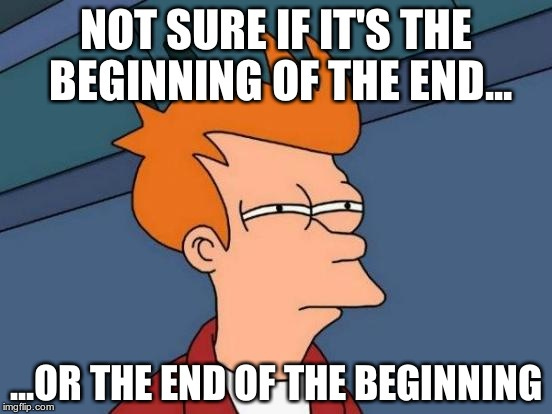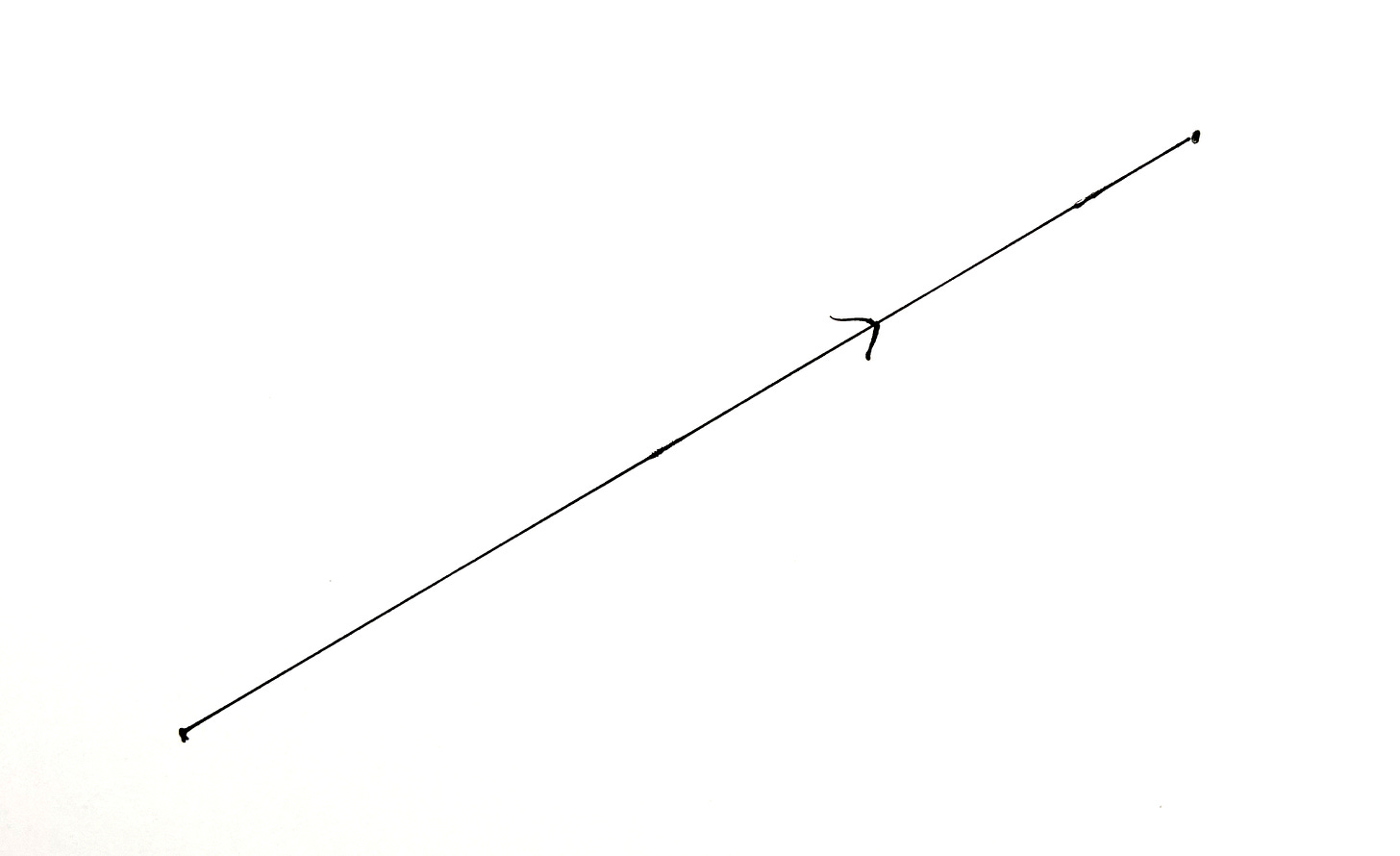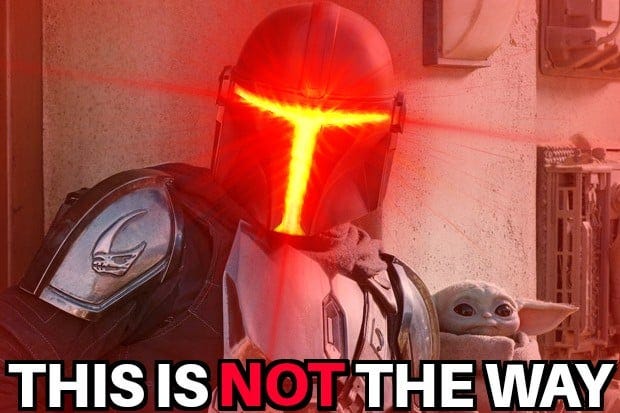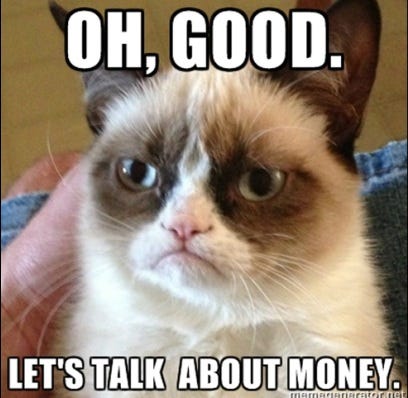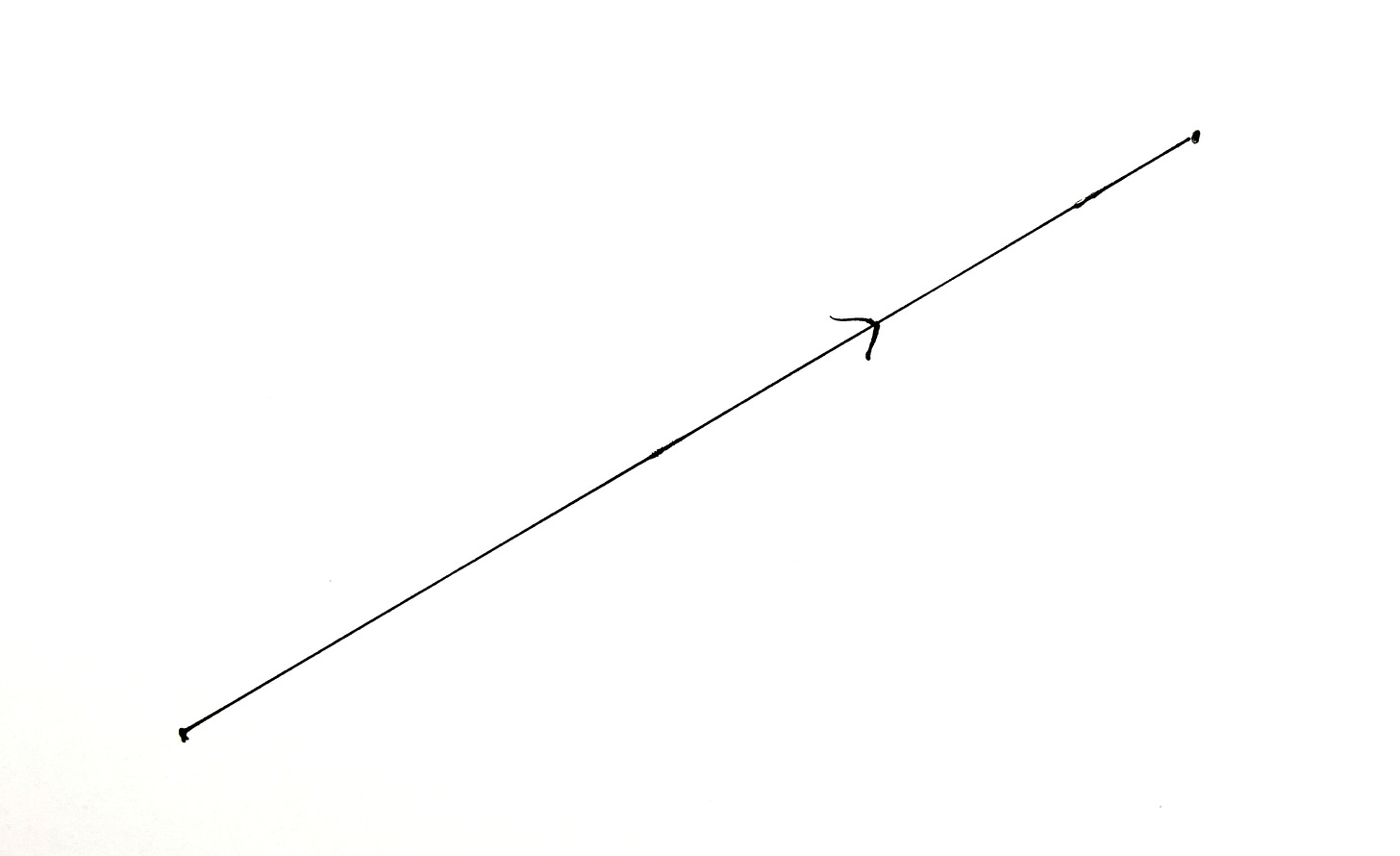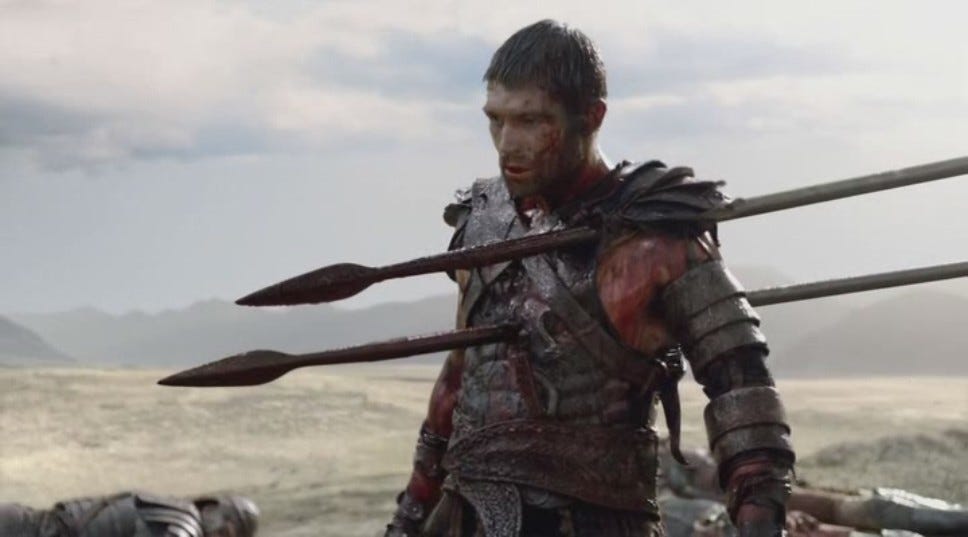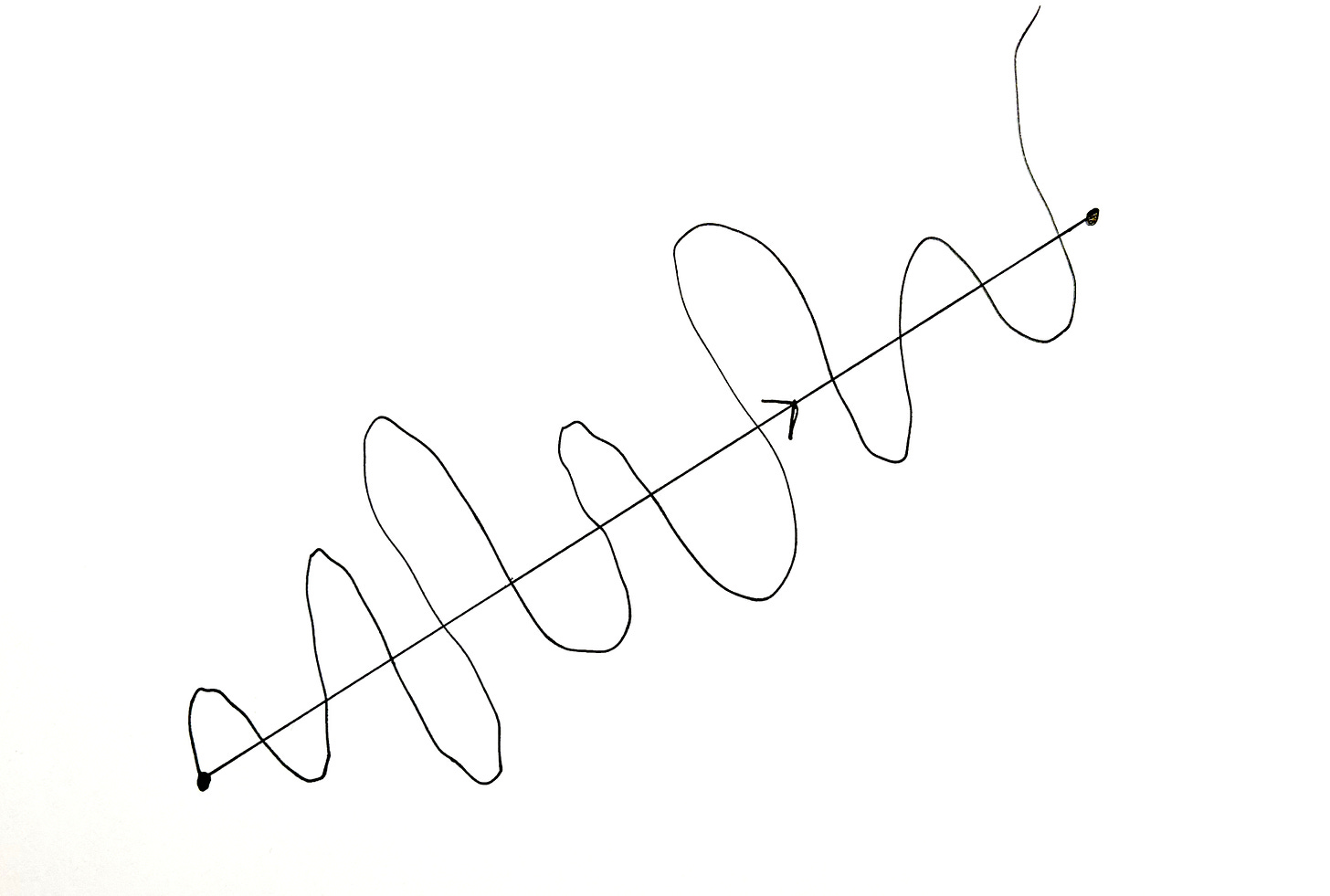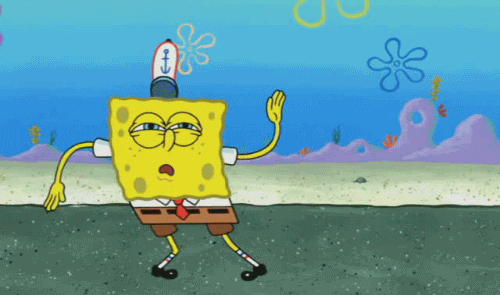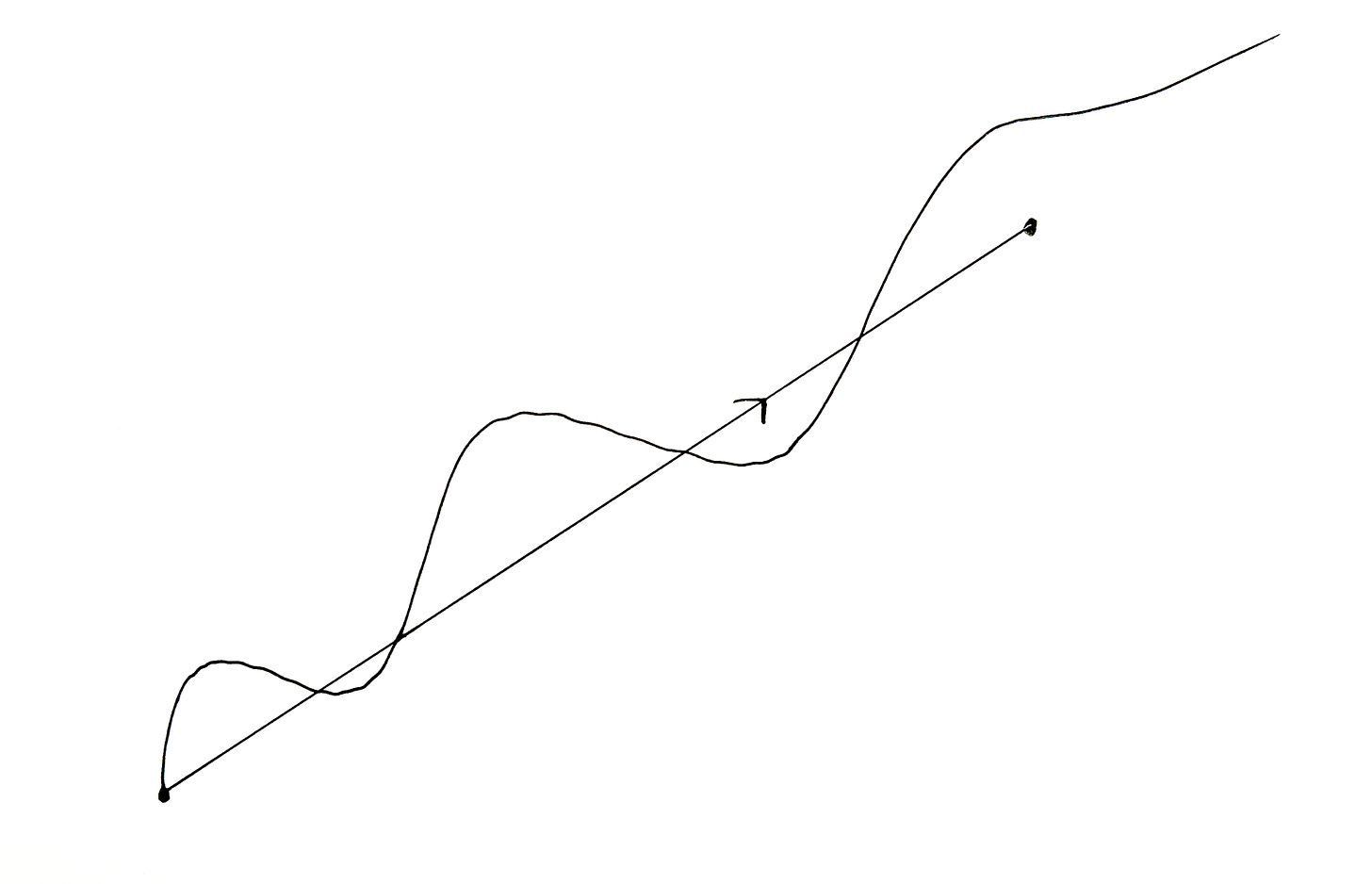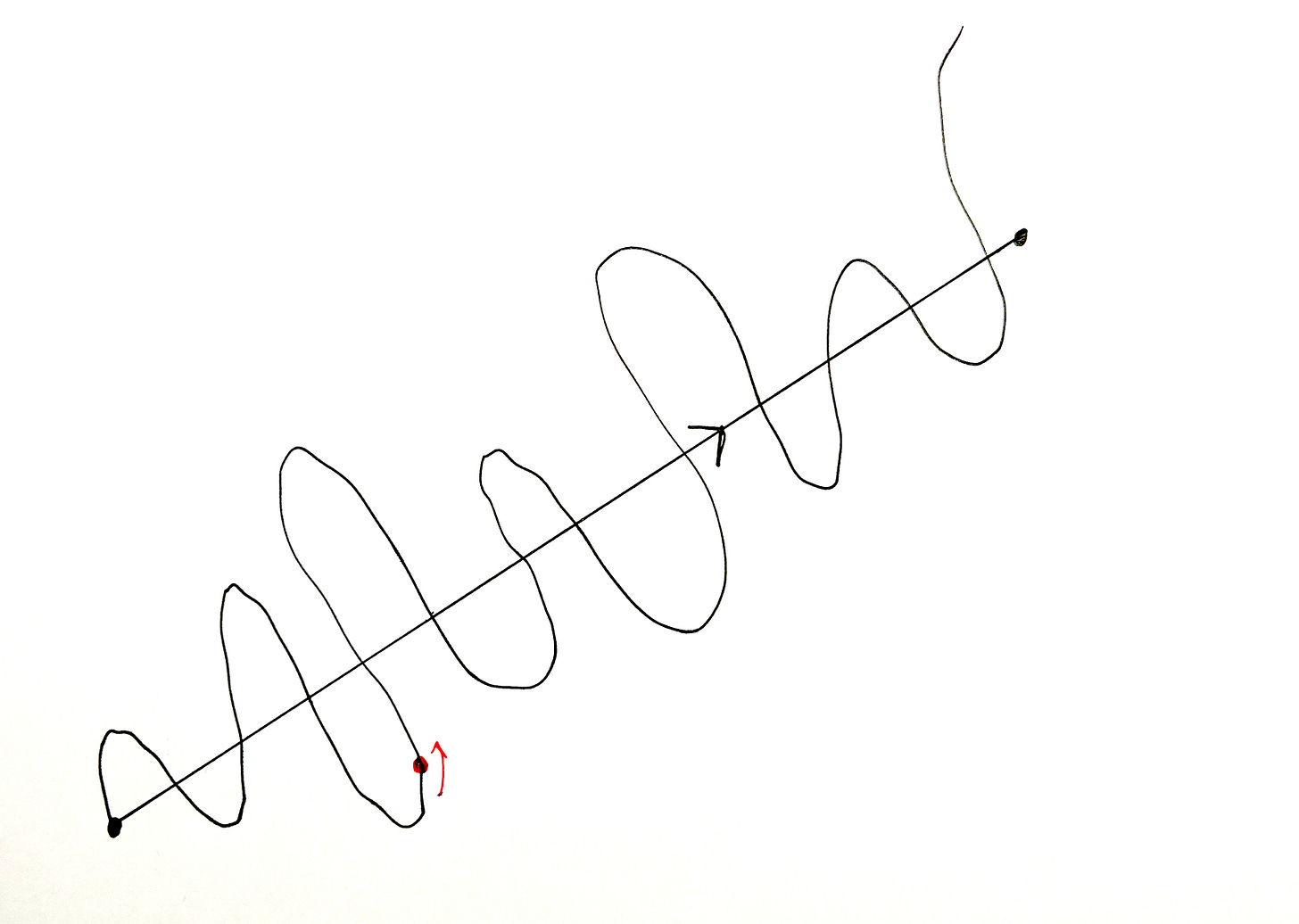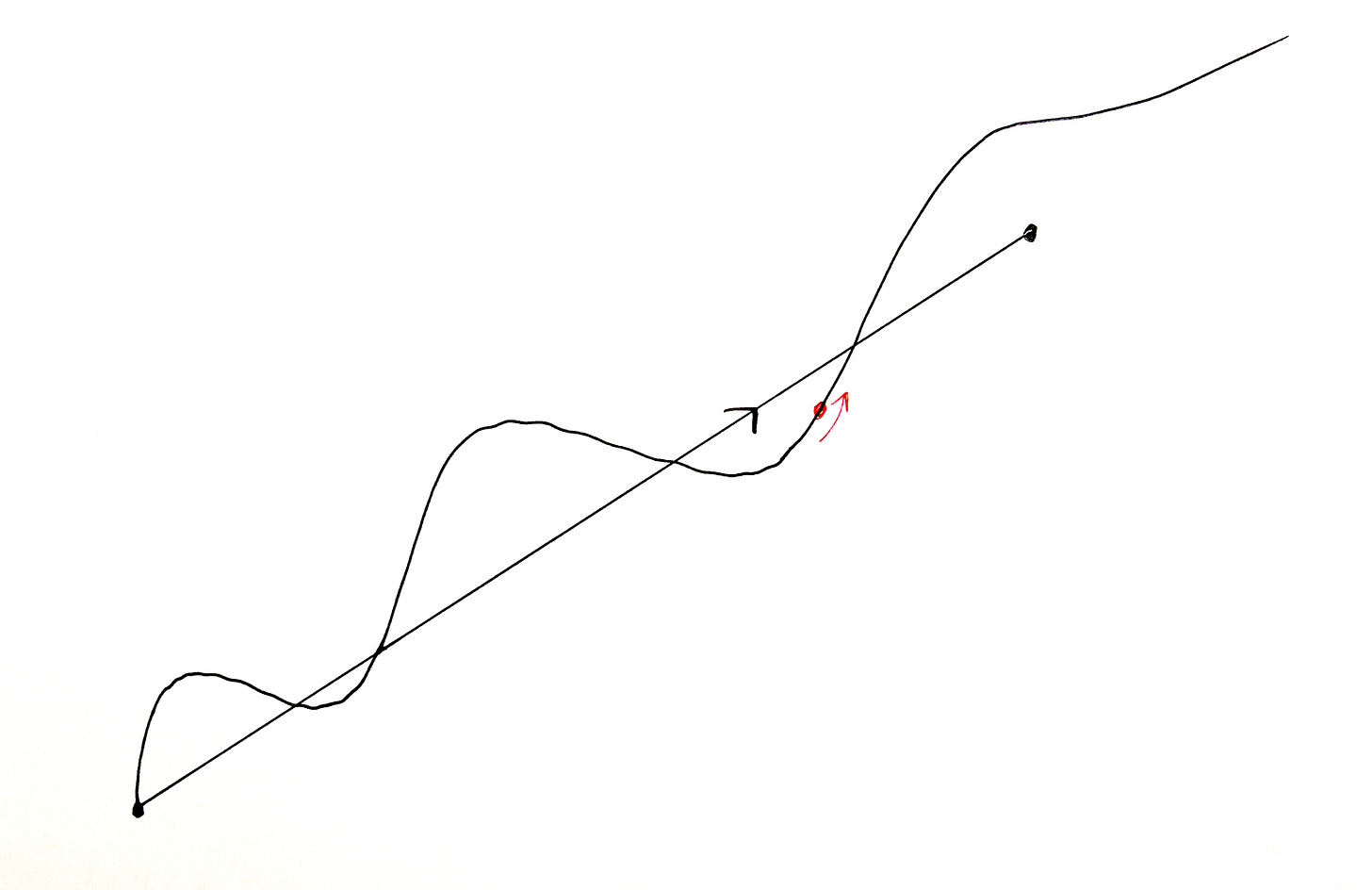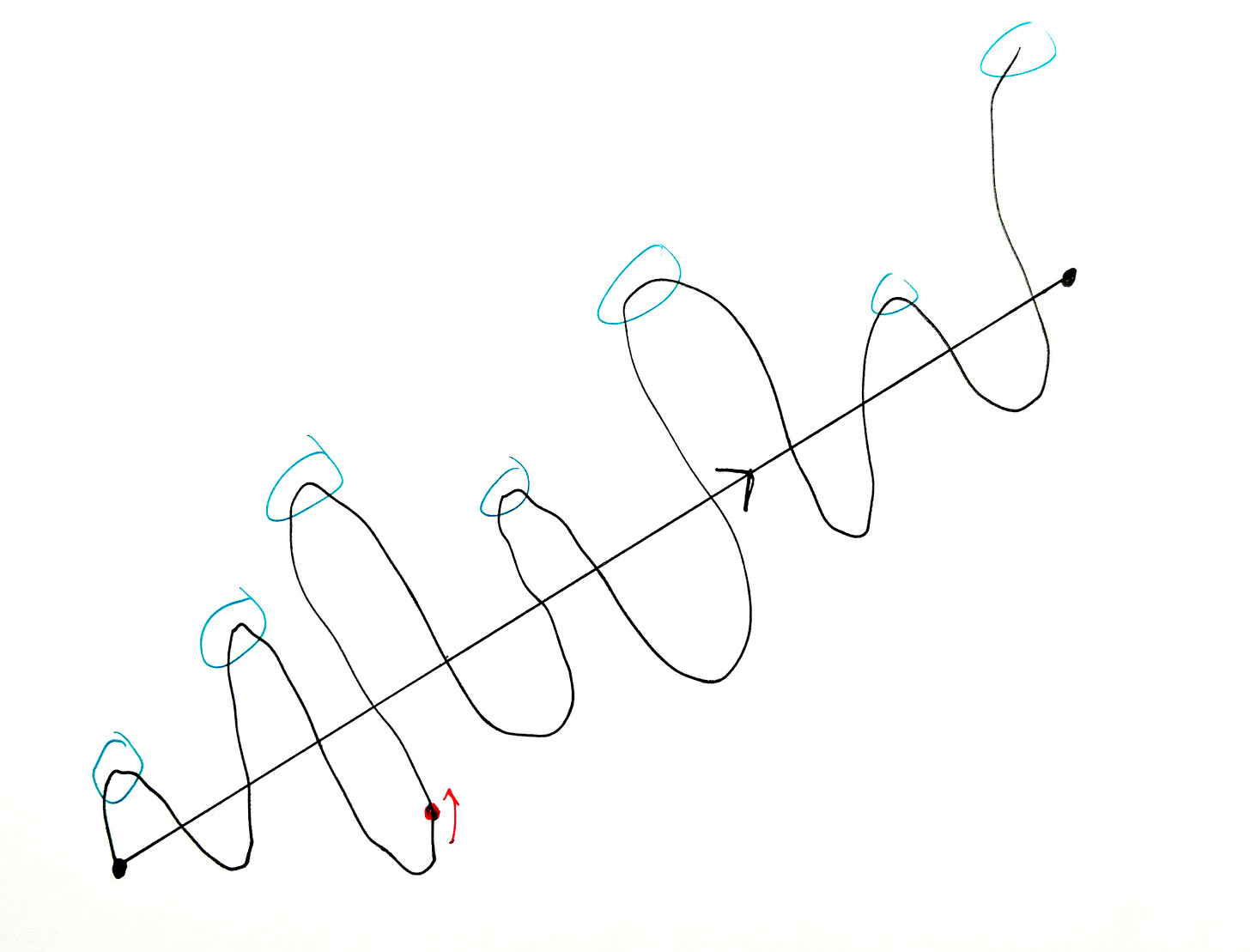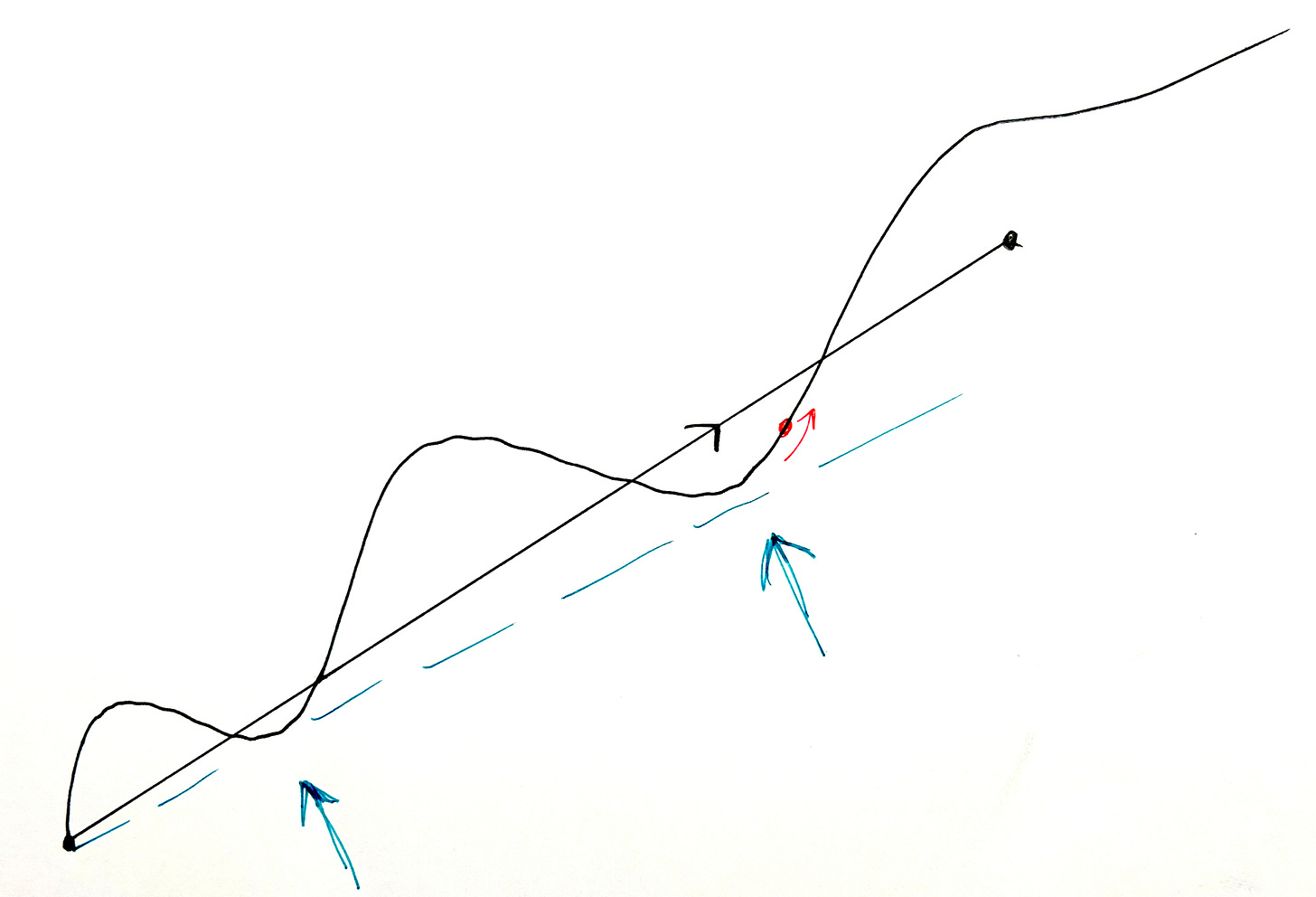Future Guardian,
This article is based on a presentation from a recent Guardian Academy Event. Brains were broken, paradigms shifted and incredible conversations started.
So it’s only fitting we make it into a post for you.
Additionally, Founding Members will find a bonus at the end of the article.
Interested in learning more about our upcoming Events?
Visit
https://www.guardiandates.com/
We begin with a little story …
A traveler is walking the path of life.
They are walking towards a distant peak. Far beyond their current sight. But they believe it's there. They have set themselves on their path.
They walk day by day, step by step. Through the rain, through the mud, through the dry dusty days, through the cold icy dirt.
One day as they trudge along,
They think ... "I wish there was a faster way to get there." And they think ...
What if I just run?
So they tighten down their pack, they pick up their walking stick, snug up their trousers, and start jogging.
Now they are really gaining ground. Flying by the little rabbits in the woods, the flowers in the fields, the other travelers here and there slowly walking along the side of the road...
They are really moving, and it feels like they'll get to that peak a lot sooner.
And then,
They round a corner,
And slip.
...
We start here, at Collapsing Time, because this is where everyone wants to begin.
At the point of doing everything faster so they don't have to wait for what they want in life.
But this is the end point.
To understand how to really get what you want in life sooner, we have to start here and back into "the way" to think through all this.
We call this "Collapsing Time" for a reason. But most people do not think about this the way we do.
Collapsing Time for most people is about getting more of what they want faster. A dynamic you might think is exactly what Collapsing Time is, except that in this case semantics matter.
They matter for perspective and understanding of what is really most important.
While Collapsing Time is about getting where you want to go sooner, it is NOT about speed, nor is it about quantity.
You might think doing everything you are doing faster, or getting more of it, is going to get you there sooner, but that idea only works in a linear 2d system. Where you are traveling on a straight line, there's nothing else around you or between you and your target, and it's all about how long it takes you to walk that straight line.
You and your life are anything but this.
Life is a moving target, and what you want out of life is a moving target. Your interests and desires will change with time and the circumstances of your life. Along the way you will contend with competing priorities and limited resources.
Getting what you want in life sooner happens in conjunction with all of the above (not in spite of).
More of what you are doing, more of what you are acquiring ... this is not the answer to get what you want in life. And that is difficult. Especially if you aren't even certain on the direction you are headed (but more on that in a moment).
How most think about Collapsing Time
Let's explore how many people think about "Collapsing Time" (or more accurately, getting what they want faster), in the three major realms of Money, Health, and Relationships.
Let's start with health. Everyone has experience with this on one level or another. Say you want to lose 50 pounds - you imagine yourself looking really good again. So you pick up a new diet, and you start a new workout routine. Maybe you're skeptical at first, but you stick with it for a couple weeks. You're going to the gym twice a week and you're eating better.
After two weeks you've noticed hey, you've dropped 5 pounds! Amazing! And it wasn't even that hard! Well ... what if you just go to the gym more. You can go to the gym 4 times a week. You can probably eat less too. You bet you can drop another 10 pounds by the end of the month! You're going to really hit that summer bod in no time.
So you push it.
What do you think, reader, is going to happen for this person? The most likely answer is "anything but the outcome they really want." Whether they hit a plateau and give up, injure themselves, or cause personal problems in the rest of their lives with their extreme shift. Chances are, they'll end up worse off than when they started.
How about relationships? This is the poster example of how going fast burns the candle out in a flash. After all, relationships are about more than yourself. So if you are operating based solely on your interests, and trying to get what you want, faster, you're just going to have a bad time.
Whether that thing you want is a long relationship, whether it's sex, whether it's just friendship. The more you push to make things happen faster for yourself, the more you push against the other person.
That is how many people seem to operate. They see something they want, and especially in romantic relationships they experience fear of "losing" that thing (even if they don't have it), and so they try to move faster, get it sooner, lock it down.
This is not the way.
There ARE people who find themselves starting new relationships and, relative to everyone else and their past experiences, RAPIDLY "Collapsing Time" to the thing they really want.
I'm not going to get into relationships much in this mini series, because I am not an expert. But I do know that the principles apply across the board.
Now, let's talk money.
Or more specifically business. And dear reader, I'm going to spill the beans for you and recollect my own failures in "Collapsing Time," where I not only Robbed Peter to Pay Paul, but I signed the very death knell of my own business.
We go back to 2018. To preface this, I'll simply say that From 2012-2020, I published a magazine all about coffee. First called Coffee Lovers Magazine, I later rebranded to Extracted.
When I begin that adventure, I knew so very little about marketing and business. I followed a guru, worked my ass off, got lucky, picked things I was passionate about, and created as much as possible. From 2012-2014 I was exclusively published through iTunes (ye old Newsstand), and around 2014 I really started figuring out email, making my own list, and establishing the business independently.
For the next 4 years I learned everything I could about email marketing and growing a business through that environment. Around the beginning of 2018, I had "cracked the code" so to speak, and had established a marketing engine that consistently brought me break even subscribers.
But.
It wasn't fast enough. I had to wait 6 months to break even. And I wanted more. I wanted it faster. I wanted to grow. I needed to dig myself out of the hustle grind scrape arena I was in.
Then, an opportunity presented itself. A partnership with a group I knew and trusted - the group who built the platform my entire digital magazine existed on - who promised what could amount to a 10x acceleration of my current system.
I thought "this is how you do it ... this is how you break through, go to the next level, and really hit explosive growth." So I took all my ad spend in the current system, and put it into the new unproven one.
I Robbed Peter to Pay Paul.
The first tests looked promising. But then there were problems. There were rebuilds. There were delays. After a time my business started showing the signs of bleeding. With no new subscribers coming in, I was just coasting on existing business.
I thought, this is going to work out, this is how I make it all happen. I couldn't see past the blind greed I had of getting everything faster faster faster.
And before I knew it, I couldn't even afford to go back to what I was doing.
I tried to "Collapse Time," but instead, I collapsed my entire business.
Have you ever put "more" into something to try to get money a lot "faster" only to find you have ended up wrecking yourself?
I think only the lucky experience otherwise (and they may very well not realize it was luck that saved them).
What is Collapsing Time really?
If Collapsing Time is not exactly "getting what you want faster," then what is it really?
Remember, Collapsing Time is not about SPEED.
Collapsing Time through speed only works in this scenario, where you're traveling on a straight line, there's nothing between you, and nothing around you
That aint life.
But notice something.
On that drawing there's not only an ending point, there's a starting point. And most notably ... there is a specific direction.
Collapsing Time is not about speed, it's about Velocity. And Velocity has that vector component - that direction.
Before we get into direction,
Consider this:
Life is not a straight line. And you are surrounded by other people, other experiences ... all the rest of life really.
Your path starts to look more like this.
Going from one point to another is never a straight line. You go up, you go down, sometimes you go forward, sometimes you go backward, sometimes you stay in one spot.
There are other things to consider.
Resources is one of those key elements. We all have limited resources. Just consider a car driving on that path. They are using a resource to do so ... gas. What happens when they run out of gas?
Our resources in life are a lot more complex than "gasoline go in make vehicle go." But the idea remains the same.
We have a limited amount of resources.
We have limited time.
We have limited money.
We have limited energy.
We have limited attention.
We have limited creativity.
We have limited choices.
We have limited perspective.
Everything about our path is bound and defined by the resources we have available to travel that path, as well as the other major element to consider ...
Priorities.
But more on those in a moment.
Let's keep it simple and consider this oscillating path that we are traveling on.
Now, if you are walking this path going from point A to point B, you're following all the twists and turns. The distance you travel is much further than that straight line.
The further you have to go, the more resources it takes, the lower probability that you'll get where you want to go. Or flip it around, the more of that path which exists between your two points, the higher probability of running out of resources, the higher probability you'll fail to achieve your goal.
How do you solve this problem?
Well,
Does that oscillating line remind you of something?
What if we do this ....
There's a correlation between the volatility of that path we travel, and the amount of resources necessary to travel that path. The ideal scenario is a straight line. But again, life is not like that. Business is not like that. Relationships are not like that.
There is volatility. But we already know one of the best tools for managing volatility don't we?
As much as possible we want to smooth out the volatile line. And see, the more you squeeze down the volatile line, the further that line goes.
Lowering volatility reduces the resource expenditure which increases the distance we can go and increases the likelihood of achieving our goal.
The most ideal way to do this, the most technically effective way, is to squeeze out the highs and the lows. Software developers will take this perspective because squeezing out the highs and the lows biases consistency, which is something you really want in a system.
But people are not machines. Most people will never squeeze out volatility effectively because the emotional peaks of those highs feel real good.
This is why the most practical way we've come to addressing volatility is our concept Raising the Floor.1 It's not about giving up those high highs, but rather about refocusing your attention to improving upon your worst, rather than spending all your energy and resources trying to beat your best (which is by definition the best you've ever historically done - which makes it all the less likely you'd be successful beating it).
Raising the Floor decreases Volatility, and because of this Velocity increases, and because of this WE COLLAPSE TIME.
But we must consider that other component. Priorities. Because life is not so simple as an oscillating line.
Priorities and Consequences





